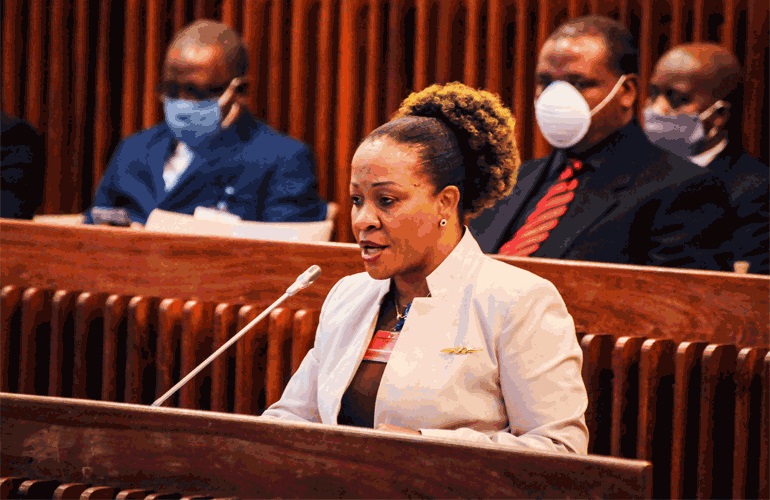Mozambique: May saw sharp rise in violence in Cabo Delgado - UN
Mozambique: Preventive detention has expired for 6,000 prisoners – AIM report

FILE PHOTO - Justice Minister Helena Kida. [File photo: Noticias]
Out of a total number of 16,000 prisoners in Mozambique, about 6,000 are remand prisoners whose period of preventive detention has expired, Justice Minister Helena Kida revealed on Wednesday.
In a lengthy interview broadcast on the publicly-owned channel, Mozambique Television (TVM), Kida added that many of those who are serving sentences qualify for conditional release. Yet they remain in the country’s overcrowded jails.
Mozambique’s prisons can hold a maximum of 8,000 inmates. But currently they house around 16,000 prisoners. The situation used to be considerably worse – recently there were around 21,000 prisoners, but the number was cut, thanks to the presidential pardon in April for prisoners serving short sentences.
Nonetheless, the prisons remain grossly overcrowded, and this overcrowding is a serious threat to the inmates’ health and lives, particularly in light of the Covid-19 pandemic. It is also very expensive, Caring for 16,000 prisoners costs the Mozambican state about 11.2 million meticais (around 162,000 US dollars) a day.
Kida assured her interviewers that work is being done to reduce the number of prisoners in the jails. But it was not solely her Ministry’s responsibility. She wanted to see “what the magistrates can do to deal with these matters with some speed”.
“Nowadays, with Covid-19, the fewer people we have in our prisons, the better”, she said. Ending the overcrowding would “reduce the risk of people becoming contaminated, in the event of an outbreak of the disease in our jails”.
Kida also revealed that the government is studying the possibility of partnerships between the Justice Ministry and private companies for the use of prisoners as labour. The employers would have to ensure that the prisoners are taught skills, so that they do not resume a life of crime when they leave the prison system.
Kida believed that prison labour could also be used on public building works, such as roads, bridges, schools and hospitals.
Within the prisons, she said, the inmates should be endowed with skills that would ensure their reinsertion into society. Those skills could enable them, on leaving prison, to become, for example, successful farmers, carpenters or metalworkers.
Kida noted that former prisoners often re-offend, and find themselves back in jail, because they did not know how to meet their basic needs – and this problem could have been solved, if they had learned some skill that could provide them with an income.
“This is our challenge”, she said. “We have to ensure that there are fewer prisoners, and that someone who was once a prisoner does not, when he is released, return to our prisons”.
Kida said her Ministry also wants to set up a prison hospital in Maputo, which would cater for all prison inmates who need medical assistance.
There is currently no such institution. When a prisoner fall ill, he is taken to the nearest unit of the national health system.
Kida said moving prisoners to public hospitals also meant moving prison guards, to avoid escapes. Guards had to be put on doors of hospital wards.
“We are undertaking a viability study, because we are going to take an existing prison and turn it into a hospital”, she said. “After that transformation, we would have to transfer the prisoners who are not sick to another establishment”.
(AIM)












Leave a Reply
Be the First to Comment!
You must be logged in to post a comment.
You must be logged in to post a comment.